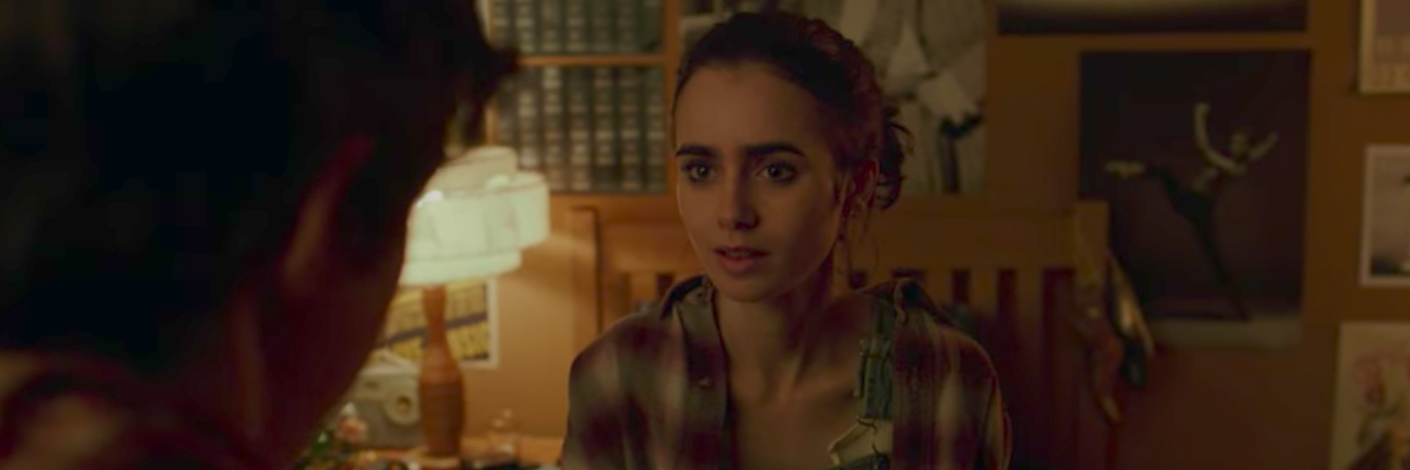I mainly live my life online. This isn’t something I’m ashamed of, it’s just a matter of fact. My closet friends live continents away which isn’t the best, but being part of the BookTube and Young Adult Books community online is what saved my life.
My online feeds and time lines are therefore luckily not filled with models or “fitness goals” but rather books, quotes and movie trailers. How could any of those things be triggering compared to a photoshopped model?
Triggering content can definitely be the photoshopped models, but what triggers one person may not trigger another and that’s something we have to accept. Obviously we can’t know every individual’s specific triggers, but there’s a few general things most of us — even those without mental illness — can agree on. I believe one of these things is that triggering content should be prefaced with a content warning.
Because of this, I was concerned when my timeline on Twitter suddenly contained the trailer of “To the Bone,” an upcoming movie created by Netflix. Just the title itself might be triggering to some. Lily Collins portrays a girl struggling with anorexia nervosa and shows her counting calories, doing sit-ups and I was feeling unsure. The trailer showed other eating disorder-related behaviors and as the actress lost weight for the role, it showed a very malnourished looking Lily.
I’m not going to nitpick the trailer or talk about the portrayal. I’m here to talk about the lack of trigger warnings for a trailer that is highly triggering for many. As someone who is in a somewhat stable point in my recovery, this trailer didn’t cause me any harm, but if I had seen it only a couple of months earlier, I’m not so sure I would have been OK. Therefore, I was appalled that not only did the trailer lack trigger warnings, but also didn’t provide resources to NEDA. What if somebody could either see themselves or a loved one in it? Where were they supposed to go to? Help is available and I believe it should be provided.
I do think Netflix is the one to blame here. However, the trailer is out there and it will stay there. That’s why we as media consumers and providers should start taking our responsibility. Two of my friends retweeted the trailer, one simply saying she was excited the other herself with great knowledge and own experience of the actual illness retweeted it and shared her opinions on it. I felt very conflicted. I was excited for the film too, and the friend with personal experience had very valid, good and important opinions. I even agreed with the points, but I didn’t think it was OK to repost without a trigger warning. I knew neither of them meant harm.
So what was I supposed to do? One of my biggest fears is to be considered annoying, but I braced myself and sent replies. Both of them answered gracefully and added trigger warnings with a retweet of the thread of tweets. The one without experience said they didn’t even think about it and that’s understandable, but that’s what what we have to try to change. We must start thinking about what we post and how it might affect others.
Therefore today, I’m urging you to be the brave you. If you see something that triggers yourself or know will trigger another, please ask them to add trigger warnings. I encourage you to think twice — if not, maybe thrice — before you retweet and add your own trigger warnings on your own posts/tweets as well on your reposts/retweets. Some might think you’ll be annoying or “extra,” but just keep in mind that seeing the “TW:ED” (trigger warning: eating disorder) might be something that keeps someone in recovery on the path to freedom from their eating disorder.
I sincerely hope you’re all free or heading towards freedom. Let’s start using trigger warnings.
If you or someone you know is struggling with an eating disorder, you can call the National Eating Disorders Association Helpline at 1-800-931-2237.
We want to hear your story. Become a Mighty contributor here.
Screenshot via Netflix Youtube channel.

